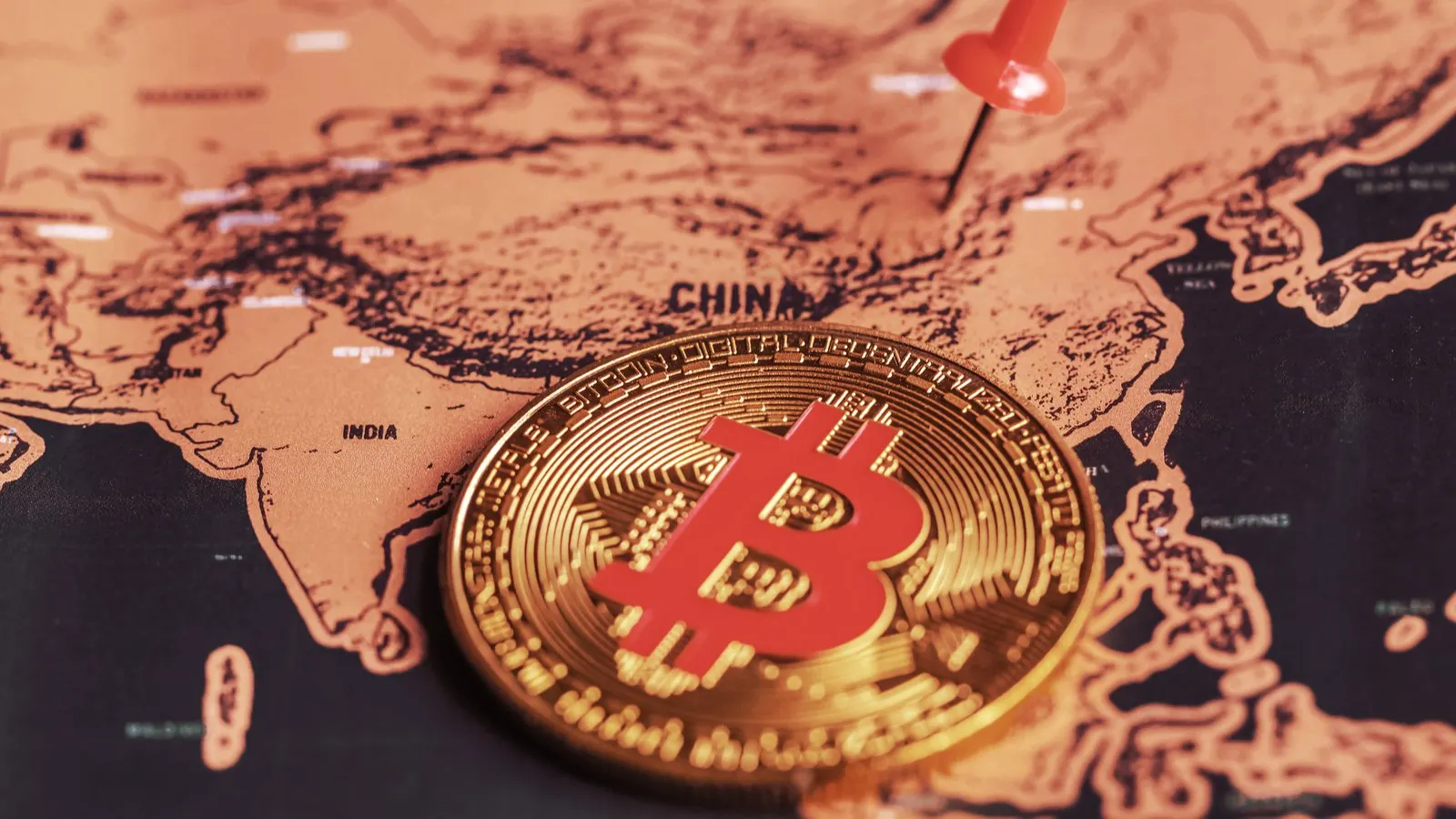In brief
- BTC.Top is the first major Bitcoin mining operator to stop operations in China citing regulatory risks.
- Other mining operators, such as Huobi Pool and HashCow, are taking measures as well, including halting cryptocurrency trading services.
Intensified pressure on the cryptocurrency industry in China has seen several crypto companies halting all or part of their operations within the country, with some already looking overseas.
BTC.Top, the tenth-largest Bitcoin mining pool responsible for 1.7% of the network’s global hash rate in the past 24 hours, has announced on Monday that it would move its operations mainly to North America.

According to a Weibo post by Jiang Zhuoer, the company’s founder, BTC.Top is suspending its China business due to regulatory risks. Zhuoer added that China’s role in the Bitcoin mining industry would likely diminish in the future as more pools relocate to either Europe or the U.S.
Huobi Global, which operates a cryptocurrency exchange and a mining pool, has also announced that “certain leveraged investment and mining pool products are temporarily unavailable to new users from a few specified countries and regions,” adding that “most users will be unaffected by this change.”
The statement included Huobi’s plan to expand its services beyond mainland China.
Huobi Pool is the fifth largest mining pool globally, with 8.7% of the Bitcoin network’s hash rate over the last 24 hours. The company added that it strives to “preserve the well-being of our users and their assets.”
Huobi has already ceased derivatives trading in China specifically as the country is the only one where traders have reported restrictions.
Meanwhile, HashCow, a Bitcoin mining operator with at least ten mining sites in mainland China, is continuing its activities so far. However, the company is reportedly stopping purchases of new mining rigs and will refund customers the cost of unshipped mining equipment.
Markets to see more chaos
The latest developments follow announcements from China’s State Council to "resolutely prevent and control financial risks." Among the list of said risks, the group included Bitcoin mining as a key sector to monitor.
It was the first time that China’s government explicitly spoke out on Bitcoin mining, a sizable business for the world's second-largest economy. According to some estimates, it accounts for as much as 65% of the network’s hash rate.
Last 48 hours have been crazy.
So what will happen & what has already happened? Here are some initial thoughts:1, This is first time such high ranking member of PRC declaring a “crack down on Bitcoin mining & trading”.
— Mustafa Yilham (@MustafaYilham) May 23, 2021
More details followed as the Economic Information Daily, a state-run newspaper focusing on economics and sponsored by Xinhua News Agency, published a front-page article highlighting the need to combat illegal activities within the sector.
The article emphasizes that “Bitcoin mining activities often use "big data projects" as a cover to defraud local governments for support, consume a lot of power resources, and are not in line with the goal of "carbon neutrality."
The mining crackdown is part of a wave of bearish news out of China.
Last week, three major payments associations in China—the National Internet Finance Association of China, the China Banking Association, and the Payment and Clearing Association of China—reiterated their commitment to support regulation introduced in 2017 that prohibits the country’s financial institutions from dealing with cryptocurrencies.
With headlines mischaracterizing it as “another Bitcoin ban in China,” the markets saw a steep drop last week, with the price of the benchmark cryptocurrency falling to lows of $31,390 over the weekend.
According to Chinese crypto reporter Colin Wu, currently, “there is no definite information” about what exact decisions China might make concerning cryptocurrencies. However, he believes that amid this uncertainty and the continued "crackdown on Bitcoin mining and trading" narrative, “any small news or even rumors can cause market volatility.”

